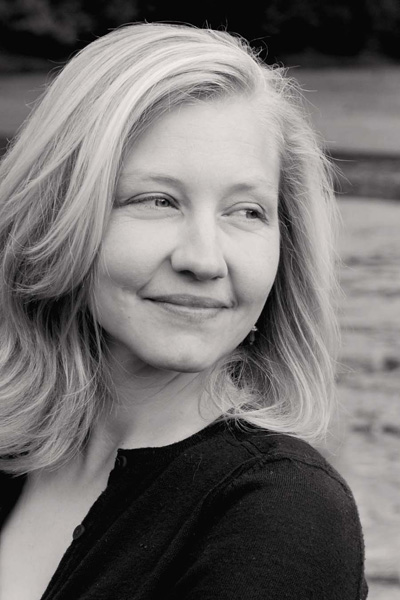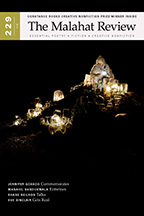When the Emotion Burns Off: PJ Grace in Conversation with Carla Funk

Carla Funk won our 2012 Constance Rooke Creative Nonfiction Prize with her story, "Returning." As the 2013 Constance Rooke Creative Nonfiction Prize deadline nears (Aug 1, 2013), Malahat volunteer PJ Grace asked Carla a few questions about what winning the prize has done for her.
It’s been a year since you won The Malahat Review’s 2012 Constance Rooke Creative Nonfiction Prize. Tell us what you’ve been up to as a writer and a professor. What’s changed? What do you hope to see change?
I’d been poking around in creative nonfiction for a few months before I wrote “Returning,” and the whole time, I felt a bit like someone feeling for the light switch in a darkened room. I needed a break from poetry, and the Malahat contest gave me a deadline to write for. Since winning, I’ve definitely changed my writing focus. This summer, I’ve been writing CNF, with a little short fiction here and there. The longer form is a challenge for me, but I’m enjoying the process of applying poetry to prose. As for what I hope will change—well, I always ache for more imaginative space in which to write, but then, doesn’t every writer?
And how about the winning piece itself, “Returning”? Do you feel any emotional distance—or closeness—since having it published last year?
My father died at the end of November, right before the piece was published. When I set to work on the essay, I sensed that this would be the last piece I’d write about him while he was still alive. In a strange way, each sentence felt like an opportunity to honour him, a man whose life had been difficult. Once I finish writing a poem or essay or story, I seldom feel much attachment to the piece itself, but the process, if emotionally potent, can hang in the memory long after. That’s the way I feel about “Returning.” I wrestled in language to honour my dad with honesty, and I still feel connected to that wrestling.
When working with creative nonfiction, writers sometimes run the risk of becoming too sentimental with their personal life on the page. Do you have any advice for this year’s Malahat Review contest entrants on how to keep a cool distance from heated subject matter in an autobiographical piece? How can writers avoid using creative nonfiction as a soapbox?
I love memoirs that write open a life in a way that takes guts. But I never enjoy feeling that the heated subject matter is all gimmick and spectacle. When the emotion burns off, I want the story to have solidity and substance, significance beyond the personal life of the narrator. For me, time yields objectivity. First drafts can be raw and messy, but the revision that comes with time tends to help first-rush honesty find a shape and make connections between the personal and the larger, more universal story. These kinds of connections can often kick the soapbox out from underneath a potentially didactic piece of writing.
Oftentimes, winning a literary contest can help kickstart a writer’s career. As an established writer, can you offer some encouragement to potential contest entrants? Why should they submit to the 2013 Constance Rooke Creative Nonfiction Prize in particular?
I still suffer occasional bouts of post-writing degree assignment withdrawal. I’m a keen starter, always kicking off new writing projects but finding it difficult to follow them all through to the end. A contest deadline can provide an external motivator for finishing a piece of writing. The Constance Rooke CNF Prize gave me a much-needed end date for an essay that might otherwise be in draft stage.
Any word on a forthcoming poetry collection?
I suspect that another poetry book will be a few years away. I have the skeleton of a manuscript, but the major organs aren’t in place yet. Truthfully, I need to find a new way into making poems. I’m weary of my poem-voice at the moment, hence the temporary shift away from the genre, but I’ll come back to it. Poetry has taught and continues to teach me more about writing than any other form.
There are rumours around campus that you’re working on a play. Can you offer any details about its premise? How do your skills as a poet come in handy when crossing genres like this?
Oh gosh, the play. And the other play. And the novel. And the other novel. And the children’s book. Like I said, I’m a starter. I won’t say much about the play, other than to say that I’d like to explore with honesty and humour and grace how mental illness affects a family. But yes, I’d love to finish the play—both of them. The up-on-its-feet-ness of stage drama holds great appeal for me, as does the form’s attention to voice. This is where poetry crosses over into drama and lends some technical skills. The precision of language required to authenticate a speaking presence transfers quite gloriously. One day, I’ll finish it. (Maybe The Malahat Review could sponsor a stage play contest, which would at least provide me and other wannabe playwrights with a deadline—hint, hint.)

PJ Grace
* * * * * * * *









